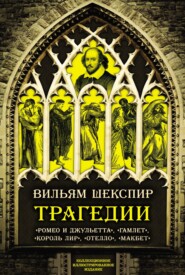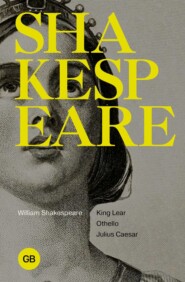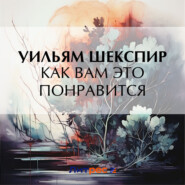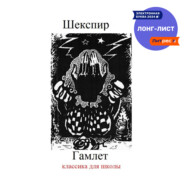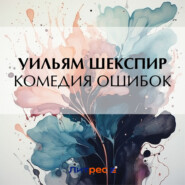По всем вопросам обращайтесь на: info@litportal.ru
(©) 2003-2024.
✖
The Third Part of King Henry the Sixth
Настройки чтения
Размер шрифта
Высота строк
Поля
As victors wear at the Olympian games.
This may plant courage in their quailing breasts,
For yet is hope of life and victory.
Forslow no longer; make we hence amain. Exeunt
SCENE IV. Another part of the field
Excursions. Enter RICHARD and CLIFFORD
RICHARD. Now, Clifford, I have singled thee alone.
Suppose this arm is for the Duke of York,
And this for Rutland; both bound to revenge,
Wert thou environ'd with a brazen wall.
CLIFFORD. Now, Richard, I am with thee here alone.
This is the hand that stabbed thy father York;
And this the hand that slew thy brother Rutland;
And here's the heart that triumphs in their death
And cheers these hands that slew thy sire and brother
To execute the like upon thyself;
And so, have at thee! [They fight]
Enter WARWICK; CLIFFORD flies
RICHARD. Nay, Warwick, single out some other chase;
For I myself will hunt this wolf to death. Exeunt
SCENE V. Another part of the field
Alarum. Enter KING HENRY alone
KING HENRY. This battle fares like to the morning's war,
When dying clouds contend with growing light,
What time the shepherd, blowing of his nails,
Can neither call it perfect day nor night.
Now sways it this way, like a mighty sea
Forc'd by the tide to combat with the wind;
Now sways it that way, like the selfsame sea
Forc'd to retire by fury of the wind.
Sometime the flood prevails, and then the wind;
Now one the better, then another best;
Both tugging to be victors, breast to breast,
Yet neither conqueror nor conquered.
So is the equal poise of this fell war.
Here on this molehill will I sit me down.
To whom God will, there be the victory!
For Margaret my queen, and Clifford too,
Have chid me from the battle, swearing both
They prosper best of all when I am thence.
Would I were dead, if God's good will were so!
For what is in this world but grief and woe?
O God! methinks it were a happy life
To be no better than a homely swain;
To sit upon a hill, as I do now,
To carve out dials quaintly, point by point,
Thereby to see the minutes how they run-
How many makes the hour full complete,
How many hours brings about the day,
How many days will finish up the year,
How many years a mortal man may live.
When this is known, then to divide the times-
So many hours must I tend my flock;
So many hours must I take my rest;
So many hours must I contemplate;
So many hours must I sport myself;
So many days my ewes have been with young;
So many weeks ere the poor fools will can;
So many years ere I shall shear the fleece:
So minutes, hours, days, months, and years,
Pass'd over to the end they were created,
Would bring white hairs unto a quiet grave.
Ah, what a life were this! how sweet! how lovely!
Gives not the hawthorn bush a sweeter shade
To shepherds looking on their silly sheep,
Than doth a rich embroider'd canopy
To kings that fear their subjects' treachery?
O yes, it doth; a thousand-fold it doth.
And to conclude: the shepherd's homely curds,
His cold thin drink out of his leather bottle,
His wonted sleep under a fresh tree's shade,
All which secure and sweetly he enjoys,
Is far beyond a prince's delicates-
His viands sparkling in a golden cup,
His body couched in a curious bed,
When care, mistrust, and treason waits on him.
Alarum. Enter a son that hath kill'd his Father, at one door; and a FATHER that hath kill'd his Son, at another door
SON. Ill blows the wind that profits nobody.
This man whom hand to hand I slew in fight
May be possessed with some store of crowns;
And I, that haply take them from him now,
May yet ere night yield both my life and them
To some man else, as this dead man doth me.
Who's this? O God! It is my father's face,
Whom in this conflict I unwares have kill'd.
O heavy times, begetting such events!
From London by the King was I press'd forth;
My father, being the Earl of Warwick's man,
Came on the part of York, press'd by his master;
And I, who at his hands receiv'd my life,
This may plant courage in their quailing breasts,
For yet is hope of life and victory.
Forslow no longer; make we hence amain. Exeunt
SCENE IV. Another part of the field
Excursions. Enter RICHARD and CLIFFORD
RICHARD. Now, Clifford, I have singled thee alone.
Suppose this arm is for the Duke of York,
And this for Rutland; both bound to revenge,
Wert thou environ'd with a brazen wall.
CLIFFORD. Now, Richard, I am with thee here alone.
This is the hand that stabbed thy father York;
And this the hand that slew thy brother Rutland;
And here's the heart that triumphs in their death
And cheers these hands that slew thy sire and brother
To execute the like upon thyself;
And so, have at thee! [They fight]
Enter WARWICK; CLIFFORD flies
RICHARD. Nay, Warwick, single out some other chase;
For I myself will hunt this wolf to death. Exeunt
SCENE V. Another part of the field
Alarum. Enter KING HENRY alone
KING HENRY. This battle fares like to the morning's war,
When dying clouds contend with growing light,
What time the shepherd, blowing of his nails,
Can neither call it perfect day nor night.
Now sways it this way, like a mighty sea
Forc'd by the tide to combat with the wind;
Now sways it that way, like the selfsame sea
Forc'd to retire by fury of the wind.
Sometime the flood prevails, and then the wind;
Now one the better, then another best;
Both tugging to be victors, breast to breast,
Yet neither conqueror nor conquered.
So is the equal poise of this fell war.
Here on this molehill will I sit me down.
To whom God will, there be the victory!
For Margaret my queen, and Clifford too,
Have chid me from the battle, swearing both
They prosper best of all when I am thence.
Would I were dead, if God's good will were so!
For what is in this world but grief and woe?
O God! methinks it were a happy life
To be no better than a homely swain;
To sit upon a hill, as I do now,
To carve out dials quaintly, point by point,
Thereby to see the minutes how they run-
How many makes the hour full complete,
How many hours brings about the day,
How many days will finish up the year,
How many years a mortal man may live.
When this is known, then to divide the times-
So many hours must I tend my flock;
So many hours must I take my rest;
So many hours must I contemplate;
So many hours must I sport myself;
So many days my ewes have been with young;
So many weeks ere the poor fools will can;
So many years ere I shall shear the fleece:
So minutes, hours, days, months, and years,
Pass'd over to the end they were created,
Would bring white hairs unto a quiet grave.
Ah, what a life were this! how sweet! how lovely!
Gives not the hawthorn bush a sweeter shade
To shepherds looking on their silly sheep,
Than doth a rich embroider'd canopy
To kings that fear their subjects' treachery?
O yes, it doth; a thousand-fold it doth.
And to conclude: the shepherd's homely curds,
His cold thin drink out of his leather bottle,
His wonted sleep under a fresh tree's shade,
All which secure and sweetly he enjoys,
Is far beyond a prince's delicates-
His viands sparkling in a golden cup,
His body couched in a curious bed,
When care, mistrust, and treason waits on him.
Alarum. Enter a son that hath kill'd his Father, at one door; and a FATHER that hath kill'd his Son, at another door
SON. Ill blows the wind that profits nobody.
This man whom hand to hand I slew in fight
May be possessed with some store of crowns;
And I, that haply take them from him now,
May yet ere night yield both my life and them
To some man else, as this dead man doth me.
Who's this? O God! It is my father's face,
Whom in this conflict I unwares have kill'd.
O heavy times, begetting such events!
From London by the King was I press'd forth;
My father, being the Earl of Warwick's man,
Came on the part of York, press'd by his master;
And I, who at his hands receiv'd my life,






